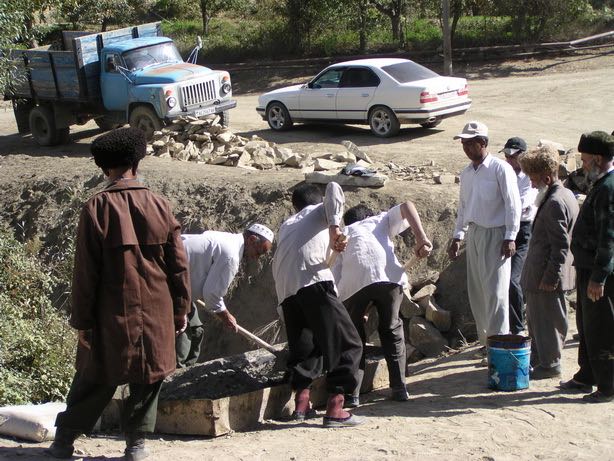

Konegummez is provided with many domestic services and ecosystem services from natural resources. During the second world war, the villagers, unlike others, did not starve; diligence, mutual assistance, organization, as well as hard working and love for their land helped them to survive in difficult times.
Since the foundation of the village, the dwellers have continuously engaged in collective action, based on mutual trust and the believe ‘together we are strong’. Over time, the strong social cohesion has also ‘paid’ for the villagers. These positive experiences fortified the believe ‘together we are strong’ and motivated villagers to always aspire new horizons and to develop their village further.
That was also the reason why they were able to build an informal committee in order to sustainably plan and manage natural resources in the village. The group includes a total of 9 people: shepherds, bayar, village elders, mirab, farmers and one teacher.
Another example for ‘modern’ organisation is related to the sale of agricultural products. Farmers have developed a resource-saving mechanism. They choose from their own villagers one person with a small truck, who goes to the market and sells the harvest of several farmers there. From the income received, each farmer pays 10%.
As emphasized above, the most important enabling factor for social cohesion and well-working local organisation is the success achieved by the villagers by organising themselves. It is a really strong driver for sustainable development.
Social cohesion, mutual trust and strong leadership are the pillars for sustainable rural development and can be utilized irrespectively of the issue at hand in different contexts: e. g. infrastructure improvement, local economic development and sustainable use of natural resources.